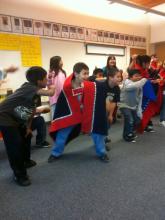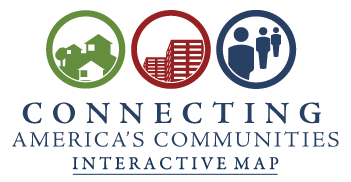The University of Alaska Fairbanks is breaking down the digital divide in remote villages across the state, using a three-prong approach to increase sustainable broadband adoption. Through the Bridging the E-Skills Gap project, the university is partnering with 21 non-profit, educational, and for-profit organizations to create distance learning, public safety, and telehealth opportunities.
For example, the Alaska Library Network, a non-profit organization created to administer and coordinate programs and services across Alaskan libraries, provides free access to two new distance learning tools at libraries throughout the state. The first, Live Homework Help, is an online educational portal that offers live homework tutors to K-12 students seven days a week. Students can get help on a variety of subjects, including math, science, English, and social studies. The second, the Testing Educational Reference Center, is an online resource where patrons can access study guides, practice tests, and tutoring videos for school entrance and career certification exams. Library visitors can use the tool to prepare for tests, such as GED, SAT, and the Reciprocal Electrician Journeyman License exam. As of December 2011, these tools were already used for approximately 1,200 training sessions.
Another project partner, the Family Centered Services of Alaska, installed two video conference centers in Fairbanks to provide distance learning classes, professional development workshops, and even family therapy sessions to low-income families. The Alaska Postsecondary Commission is in the process of creating the College and Career Guide, an online portal that allows students to develop career plans, research and apply to colleges and postsecondary institutions, and find scholarships and other financial aid. Yet another project partner, the Alaska Native Tribal Consortium, offers a Telehealth Coordinator Certification Program for medical professionals. This three-course program helps individuals become certified workers skilled in the use and application of telehealth applications and videoconferencing equipment.
The University of Alaska’s ultimate goal is to provide broadband training to as many as 7,400 residents, both old and young. To reach the region’s youngest and most remote residents, the university created the Digital Storytelling–Performance Literacy program, a unique workshop where K-12 students learn how to digitally write and tell their own culturally relevant stories. Participants learn podcast basics, Microsoft ® PowerPoint fundamentals, and oral presentation skills. At the end of the class, students create and perform their own personal stories. As of December 2011, 71 students have participated in the program, telling stories on a wide variety of subjects, including Tlingit customs, native Alaskan animals, and family ancestry.
Last Updated: December 23, 2011










